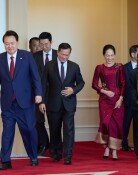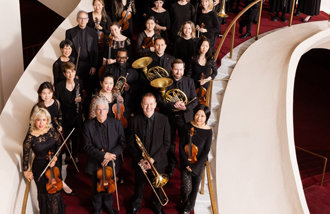Smart Sea Farm
Smart Sea Farm
Posted November. 12, 2016 07:12,
Updated November. 12, 2016 07:17
Back in 2000 when then Republican presidential candidate George W. Bush won the U.S. presidential election against Democratic candidate Al Gore by a close margin, former President Kim Dae-jung failed to judge the impact of the regime change in the U.S. on the Korean Peninsula. President Kim rushed to hold a summit in order to persuade the incoming president to support his Sunshine Policy. At that time, the Korean president didn’t know anything about Bush.
President Bush called President Kim from the White House on Jan. 25, 2001. When Kim began telling Bush about the need to engage North Korea, the U.S. president put his hand over the mouthpiece of the telephone and said, “Who is this guy? I can’t believe how naïve he is!” Charles Pritchard, senior Asia advisor of the Bush administration, recalled as above in his memoirs.
The first summit with the U.S., which was held on March 8, 2001, in Washington D.C., was more disastrous. At a joint press conference, the U.S. president expressed deep mistrust of North Korea by saying that he still doubted on the North Korean leader and he even intercepted President Kim’s answer. Bush called President Kim as "this man" and it provoked a controversy over his manner as it could be considered as a diplomatic discourtesy. "This man" is a casual reference like “this gentleman” in Korean. But many people wondered whether Mr. Bush had an intention to say that. President Kim later said, “It was unpleasant for me to hear that. Usually, I don’t care about the age, but when I hear that word from him, I realized that he was my son’s age.”
The New York Times once reported that the worsening relation with the U.S. was a political blow to Mr. Kim. The two sides confirmed that they had a different point of view from the diplomatic disaster. In a way, it was because of that South Korea rushed to hold a summit before the incoming Bush administration had much time to have clear opinions on the policy of the Korean Peninsula. Another symbolic event was that former U.S. Secretary of State Colin Powell changed his comment after harsh rebukes from the president when the secretary said that the Bush administration would continue to negotiate with North Korea on its missile program a day before the summit. It was the summer of 2002, when the Bush administration completed its review on the policy towards the North and started to engage in the dialogue. But the Pyongyang-Washington relations turned sour again and never went back to the days of the Clinton administration as the North pursued uranium enrichment.
President Park Geun-hye called U.S. President-elect Donald Trump on Thursday and asked him to visit South Korea as soon as possible. Some people argue that Korea needs to hold a meeting with him soon as Japanese Prime Minister Shinzo Abe plans to meet him on Nov. 17 and which makes a point. However, the real issue here is not to meet him early, but to prepare the meeting well to yield a successful result. We need to elaborate our arguments on issues of sharing the military expenditure of the U.S. Forces in Korea, renegotiation of FTA and others that Trump wants to talk first.
The new diplomatic security team of the Trump administration needs time to prepare for discussions with South Korea on its policy towards North Korea. The Trump administration may lose momentum in pressuring and imposing sanctions against the North. However, the incoming government would not repeat the policy of the Obama administration and follow our guideline. We now stand at a critical moment of witnessing a regime change of the U.S. in 16 years. Thus, we should not make the same mistake again by taking hasty diplomatic moves. The most important thing is to make Mr. Trump, who is a natural born businessman, to believe that President Park is a reliable and adroit negotiator. But I am hardly sure whether she is prepared for this.
한기흥기자 eligius@donga.com







